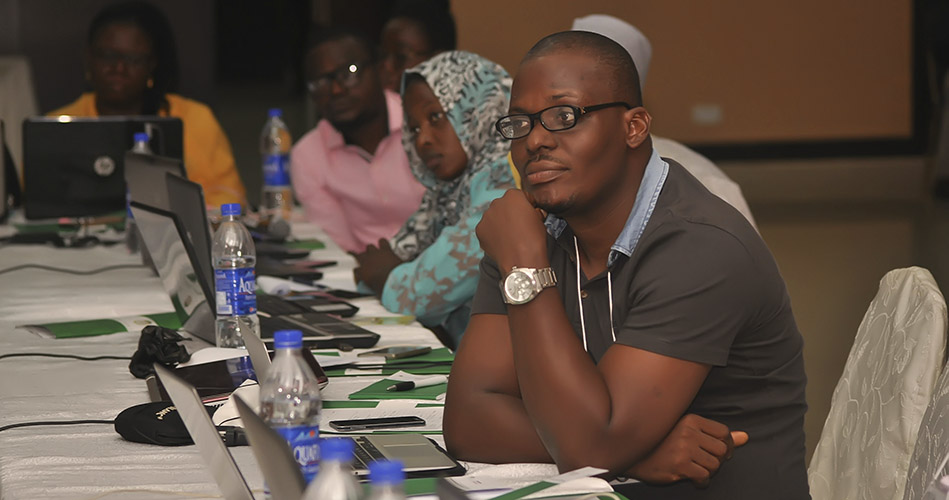Embracing eHealth: McMaster advances global outreach activities in Nigeria

Technology is advancing rapidly. With this advancement, our day-to-day lives have become more convenient and efficient.
One important field we’re seeing new technological innovations in is healthcare. The collaboration between information technology and healthcare is known as eHealth, and it’s truly going global.
A team of interdisciplinary experts from McMaster helped organize and lead a recent seven-day course on this very subject in Abuja, Nigeria.
The practice of eHealth involves more than just incorporating computer technology to make hospitals more efficient or health records easily accessible – eHealth strives to create an electronic capture of a patient’s entire medical history. It’s a collection of all the information that has ever been shared by or to a medical professional.
Data is not only meant for storage, but to be used to plan and predict actions for the future. Healthcare is being redefined globally by creating a network that uses information and communication technology to draw connections between disease surveillance, public health, and national policies.
The DeGroote School of Business’ Executive Education team organized the Nigeria trip, in partnership with the country’s National Information Technology Development Agency (NITDA), the Government of Canada, and McMaster’s Faculty of Health Sciences. The idea was to create a program that could officially introduce key eHealth topics to interested parties, while also highlighting McMaster’s expertise in experiential learning.
“At McMaster, we are very excited about the uniqueness and value that experiential learning adds to our program. It provides our students with skills they will utilize in their futures and use to distinguish themselves,” says Chris Anstead, Director of DeGroote Executive Education. “We welcome this opportunity to apply these same values in a global setting.”
Dr. Ann McKibbon and Dr. Norm Archer were the main faculty members involved in developing the content and ensuring that all topics discussed were well-researched and relevant. The program was designed to be taught through a combination of traditional and digital lectures, with Dr. Archer teleconferencing from Canada and Dr. McKibbon on site in Nigeria to interact with participants.
The program focused on topics such as digital record telehealth, systems inter-operability and standards, and privacy and security. These topics were further explored through scenario-based exercises and meaningful conversation among participants, as well as an engaging case study component.
Another key member in the development of the program was embedded systems innovator and McMaster Health Sciences and Engineering alumnus Adekunle Ajiboye.
Ajiboye is the CEO of an electronic technologies solutions and services firm, Aajimatics. The firm’s current focus is on delivering eHealth, eBusiness, and eSecurity technologies to a varied clientele in North America and in emerging markets such as Nigeria.
Ajiboye was also present on site, and helped facilitate various components of the program while ensuring the course content was applicable to the Nigerian healthcare system.
“I have known Adekunle for the past five years, and I’ve watched his electronic health records research and product development produce extraordinary results in countries like Nigeria,” says David Sweet, MP for Flamborough-Glanbrook. Sweet has helped Ajiboye and his team secure federal support for his innovative program over the last four years.
“Having someone from McMaster bring innovative health technology to sub-Saharan African truly demonstrates how Canadian ingenuity, Canadian drive and Canadian values are making a difference in some of the toughest corners of the world,” Sweet adds.
Overall, the team was able to successfully execute the initiative in Nigeria, and received positive responses from everyone involved. NITDA has already expressed interest in offering the program to a new set of participants in the near future.


